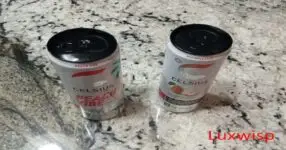The pros of Nido milk are its convenience in preparation with long shelf life and inclusion of essential nutrients while offering a creamy taste.
The cons of Nido milk are potential allergenic reactions for those with lactose intolerance and a risk of nutrient loss during the powdering process, coupled with concerns over packaging waste and artificial trans fats.
Takeaways:
- Nido milk is fortified with essential vitamins and minerals, making it a valuable dietary supplement that contributes to nutrition.
- Nido milk has a shelf life of up to two years, making it a practical and reliable option for long-term storage.
- Nido milk is a versatile ingredient that can be used in various culinary applications, enhancing the flavor and texture of dishes.
- Individuals should consider the nutritional benefits, cost-effectiveness, health considerations, and environmental impact when making consumption decisions regarding Nido milk.
| Pros of Nido Milk | Cons of Nido Milk |
|---|---|
| Tastes Like Real Milk | Not Organic |
| Reconstitutes Well with Cold Water | Higher Cost Per Fluid Ounce |
| Full Fat, Yet Light | Limited Availability in Mainstream Grocery Stores |
| Contains Prebiotics and Probiotics | Faint Cooked Milk Odor |
| Rich in DHA Fatty Acid | Nutritional Comparison with Similac Grow & Go |
| Smooth and Creamy Taste | Potential Allergen for Lactose Intolerant Individuals |
| Easily Dissolves in Hot or Cold Water | Requires Proper Storage |
| Long Shelf Life | Potential for Over-Consumption |
| Contains Essential Vitamins and Nutrients | Packaging Waste |
| Suitable for Toddlers Aged 1-3 Years | Not Suitable for Infants |
Pros of Nido Milk
- Tastes Like Real Milk: Nido milk is known for its authentic milk taste, making it a preferable choice for those who enjoy the flavor of milk. This is especially important for children who are fussy about taste, as it encourages them to consume milk regularly, which is essential for their growth and development.
- Reconstitutes Well with Cold Water: The ability to reconstitute well with cold water makes Nido milk convenient and easy to prepare. This is particularly useful in situations where heating water is not feasible, such as during travel or in outdoor settings.
- Full Fat, Yet Light: Despite being full-fat, Nido milk has a light texture, making it a suitable option for those who prefer milk that is not too heavy. This feature allows individuals to enjoy the richness of full-fat milk without the heaviness associated with it.
- Contains Prebiotics and Probiotics: The inclusion of prebiotics and probiotics in Nido milk is beneficial for gut health. These components aid in digestion and help maintain a healthy balance of gut flora, which is crucial for overall well-being.
- Rich in DHA Fatty Acid: DHA is an essential fatty acid that plays a key role in brain development. The presence of DHA in Nido milk makes it a valuable dietary addition, particularly for toddlers in their developmental stages.
- Smooth and Creamy Taste: The smooth and creamy taste of Nido milk enhances its appeal, especially to young children. This can help in developing a positive attitude towards milk consumption from an early age.
- Easily Dissolves in Hot or Cold Water: Nido milk’s ability to dissolve easily in both hot and cold water adds to its convenience. This feature makes it a versatile choice for different milk-based preparations and recipes.
- Long Shelf Life: The long shelf life of Nido milk ensures that it can be stored for extended periods without spoilage. This is particularly beneficial for households that do not consume milk quickly or for use in emergency food supplies.
- Contains Essential Vitamins and Nutrients: Nido milk is fortified with essential vitamins and nutrients, such as iron, vitamin C, calcium, and vitamin D. These nutrients are crucial for the development of strong bones and teeth, as well as for supporting overall growth and learning abilities.
- Suitable for Toddlers Aged 1-3 Years: Being specifically suitable for toddlers aged 1-3 years, Nido milk is formulated to meet the nutritional needs of this particular age group. This makes it a tailored choice for parents looking for age-appropriate milk options.
Cons of Nido Milk
- Not Organic: Nido milk is not organic, which may be a concern for consumers who prefer organic products due to their natural cultivation methods and perceived health benefits.
- Higher Cost Per Fluid Ounce: The higher cost per fluid ounce of Nido milk compared to some other milk products can be a disadvantage for budget-conscious consumers. This may limit its affordability for some families.
- Limited Availability in Mainstream Grocery Stores: Nido milk’s limited availability in mainstream grocery stores can be inconvenient for regular shoppers. This may necessitate special trips to specific stores or online purchases, adding to the overall effort and cost.
- Faint Cooked Milk Odor: The faint cooked milk odor of Nido milk may be off-putting to some individuals. This can affect the sensory experience of consuming the milk, particularly for those who are sensitive to smells.
- Nutritional Comparison with Similac Grow & Go: When compared to products like Similac Grow & Go, Nido milk may not be as nutritionally sound. This could be a consideration for parents seeking the most nutritionally complete options for their children.
- Potential Allergen for Lactose Intolerant Individuals: As a dairy product, Nido milk can be a potential allergen for individuals with lactose intolerance. This limits its suitability for a segment of the population who cannot consume lactose without adverse effects.
- Requires Proper Storage: The need for proper storage to maintain its quality can be a downside. Improper storage may lead to spoilage or degradation of the product, despite its long shelf life.
- Potential for Over-Consumption: Given its appealing taste, there’s a potential for over-consumption, especially in children. This can lead to excessive calorie intake and potential nutritional imbalances if not monitored.
- Packaging Waste: The packaging of Nido milk, especially if consumed regularly, can contribute to environmental waste. This is a concern for environmentally conscious consumers who aim to minimize their ecological footprint.
- Not Suitable for Infants: Nido milk is not suitable for infants under one year of age. This means that parents of younger infants cannot use this product as a substitute for breast milk or infant formula, limiting its utility for this age group.
Nido milk 1-3 years old side effects
Nido milk, designed for children aged 1-3 years, may have side effects including potential allergies due to its cow’s milk content, digestive issues from overconsumption or incorrect preparation, and excessive sugar intake leading to unhealthy weight gain and tooth decay.
However, these side effects vary among individuals and largely depend on the child’s tolerance and product usage.
It’s crucial to follow the manufacturer’s guidelines and consult healthcare professionals for any dietary concerns.
Note that these effects are not universal, and if adverse reactions are observed, seek medical advice promptly.
Nutritional Benefits of Nido
The nutritional fortification of Nido milk with essential vitamins and minerals significantly enhances its contribution to a balanced diet. This process enriches the milk, making it a potent source of vital nutrients that are crucial for various bodily functions. As a convenient and versatile beverage, Nido milk fits seamlessly into the hectic schedules of contemporary lifestyles, providing a quick and easy means to obtain important dietary components.
Nido milk’s high calcium content stands out, promoting the development of strong bones and teeth, which is particularly beneficial for growing children and adolescents. Moreover, the age-specific formulations of Nido products are designed to cater to the unique nutritional requirements of different age groups. This targeted approach ensures that individuals receive the appropriate levels of nutrients corresponding to their developmental stage.
Furthermore, the array of Nido products available offers choices that suit a range of dietary needs and taste preferences. Consumers can select from various options, ensuring that they find a product that aligns with their nutritional goals. The strategic fortification and variety of Nido milk underscore its role as a valuable dietary supplement, contributing positively to the nutrition of its consumers.
Shelf Life and Storage
Boasting an impressive shelf life of up to two years, Nido milk offers a practical and reliable dairy option for long-term storage without compromising on nutrient retention or taste. This extended shelf life is particularly advantageous for households looking to maintain a stock of milk for emergency preparedness or for those who consume dairy less frequently.
Additionally, the powdered form of Nido milk ensures that it remains unspoiled for a considerable period, even after the package has been opened, provided it is stored correctly.
To maximize the shelf life and quality of Nido milk, consider the following storage guidelines:
- Store in a cool, dry place away from direct sunlight to prevent degradation of the product.
- Keep the powdered milk in an airtight container after opening to prevent moisture absorption and contamination.
- Do not store near strong-smelling foods or substances, as powdered milk can absorb odors, which may affect its taste.
- Always ensure that the scoop or spoon used to measure the powder is dry to avoid introducing moisture into the powder.
Taste and Versatility

Turning to the sensory appeal and functional range of Nido milk, its flavor profile closely mimics that of fresh milk, which is essential for consumers seeking an authentic taste experience.
The product’s ability to seamlessly integrate into a wide array of culinary applications, from baking to cooking, underlines its substantial versatility.
Additionally, its commendable mixability with beverages such as coffee positions Nido as a convenient, multipurpose ingredient in both hot and cold preparations.
Flavor Profile Overview
With its rich and creamy flavor, Nido milk closely mimics the taste of real milk, providing a versatile ingredient for a variety of culinary applications. Its full-bodied taste enhances dishes, from sweet to savory, and its ease of reconstitution allows for quick and efficient use in the kitchen. The flavor profile of Nido milk is such that it can be a central component in a broad spectrum of recipes, offering both convenience and quality.
Here are key aspects of Nido milk’s flavor profile and versatility:
- Reconstitutes effectively with cold water, ensuring immediate readiness for use.
- Ideal for baking, contributing to moist and flavorful cakes and pastries.
- Enhances savory dishes like creamy soups and sauces with added richness.
- Serves as a reliable coffee creamer, adding a smooth and comforting dimension to beverages.
Culinary Use Range
Building on its rich flavor profile, Nido milk showcases exceptional versatility across a wide spectrum of culinary applications, ranging from baked goods to savory sauces. Its powdered form allows for both convenience in storage and ease of incorporation into diverse recipes. Chefs and home cooks alike appreciate Nido milk for its creamy taste, which can enhance the texture and flavor depth of various dishes.
| Application | Nido Milk Benefit |
|---|---|
| Baked Goods | Adds richness |
| Creamy Soups | Enhances texture |
| Hot Beverages | Improves creaminess |
| Savory Sauces | Provides flavor depth |
Nido milk’s adaptability elevates it as a staple ingredient in kitchens, affirming its status as a culinary chameleon capable of complementing a broad range of flavors and cooking techniques.
Mixability With Beverages
Nido milk’s solubility makes it an excellent companion for various beverages, offering a boost in flavor and smoothness without compromising the integrity of the original drink. Its powdered form allows for easy integration into both hot and cold liquids, becoming an essential pantry staple for those who value versatility in their kitchen.
To illustrate Nido milk’s mixability with beverages, consider the following:
- Coffee and Tea: Nido milk readily dissolves, creating a rich, creamy texture that enhances the overall experience of your morning brew or afternoon tea.
- Smoothies and Shakes: Adding Nido milk contributes to a thicker, more nutritious blend, perfect for a post-workout drink or a meal replacement.
- Cocktails: It can be used to add a milky richness to certain cocktails, providing a velvety mouthfeel.
- Cooking Sauces: Beyond beverages, Nido milk can be mixed into sauces or soups for added creaminess without watering down the flavor.
Cost Comparison With Alternatives
When comparing Nido milk to other milk options, it is essential to consider both the financial implications and the nutritional value to determine its overall cost-effectiveness.
Nido milk, often positioned as a premium product, may appear to have a steeper price tag compared to regular dairy milk or plant-based alternatives. This initial cost may seem daunting to budget-conscious consumers who must balance affordability with nutritional needs.
However, the comparison should not end at the shelf price. Evaluating the nutritional benefits and the specific dietary requirements of an individual or family can provide a more nuanced view of value. Nido milk is fortified with additional vitamins and minerals, which can be particularly beneficial for certain age groups, such as children in their developmental years. This fortification may mitigate the need for supplemental vitamins, potentially leading to savings in other areas of a health budget.
It is also prudent to acknowledge the spectrum of milk alternatives available in the market, each with varying prices. Consumers have the option to choose from a range of milks, such as almond, soy, oat, or cow’s milk, based on their nutritional preferences and financial considerations.
The ultimate cost-effectiveness of Nido milk, therefore, will vary according to individual needs and priorities.
Health Considerations
When considering the health implications of Nido Milk, it is essential to analyze its nutritional content and how it aligns with dietary needs.
Individuals with allergies or intolerances to dairy or soy should be aware of potential adverse reactions.
Moreover, understanding the long-term health impacts, such as the risk of chronic diseases associated with high sugar intake, is crucial for informed consumption decisions.
Nutritional Content Analysis
Analyzing the nutritional content of Nido milk reveals a complex balance of essential nutrients beneficial for growth, alongside considerations regarding added sugars and preservatives that may necessitate caution among certain consumers.
- Nido milk is enriched with vitamins and minerals, supporting the developmental needs of children with a tailored formulation.
- Its extended shelf life up to two years speaks to the convenience for long-term storage without compromising immediate nutritional value.
- However, high sugar content and the presence of allergens may pose health risks, highlighting the importance of moderation and awareness of individual dietary sensitivities.
- The addition of sugars and preservatives in Nido milk could have implications on long-term health, making it crucial for consumers to weigh the benefits against potential dietary concerns.
Allergy and Intolerance Risk
While Nido milk offers essential nutrients for children’s growth, it is important to consider the allergy and intolerance risks associated with its consumption.
Children with lactose or soy protein allergies may experience adverse reactions when drinking Nido milk, as it contains milk and soy ingredients.
Moreover, the added sugars and preservatives in Nido milk could contribute to health issues such as diabetes and obesity if consumed in large quantities.
The heat treatment used in its production may also diminish nutritional value and, in some cases, lead to the formation of carcinogenic compounds.
Therefore, for individuals with lactose intolerance, a careful assessment of tolerance levels and dietary preferences is crucial before incorporating Nido milk into their diet.
Long-Term Health Impact
Considering the long-term health impact of Nido milk, it is essential to balance its nutritional benefits with the potential risks associated with added sugars, preservatives, and allergens. The following points should be considered:
- Nutrient Density: Nido milk is fortified with vitamins and minerals, supporting growth and development for children.
- Shelf Life: Its extended shelf life aids in maintaining a nutritious dairy supply without frequent shopping trips.
- Added Sugars and Preservatives: Regular consumption of Nido milk may lead to an increased risk of obesity, diabetes, and other health complications.
- Allergen Concerns: Children with lactose or soy protein allergies could experience adverse reactions, and heat treatment during production might lower nutritional quality or introduce harmful compounds.
Environmental Impact

The production and disposal of Nido milk packaging contribute significantly to environmental waste, highlighting the need for sustainable packaging solutions and responsible consumer behavior.
As Nido milk typically comes in powdered form, it is packaged in either tin cans, which are recyclable but resource-intensive to produce, or in plastic pouches, which often end up in landfills. The environmental footprint of these materials is considerable, as their production involves the consumption of non-renewable resources and energy, while their disposal can lead to pollution and harm to wildlife.
Recycling and proper disposal of Nido milk containers are crucial in mitigating the potential environmental damage. Consumers play a pivotal role by choosing products with minimal packaging, opting for larger sizes to reduce waste, and recycling containers whenever possible. The awareness of Nido milk’s environmental impact should extend beyond the shelves to the entire lifecycle of the product.
Moreover, the consideration of sustainable alternatives, such as biodegradable or compostable packaging, could further reduce the ecological impact. Manufacturers have a responsibility to explore these options and lead the charge in reducing the carbon footprint of dairy products. As the global community becomes increasingly eco-conscious, the pressure mounts on brands like Nido to prioritize environmental sustainability.
Suitability for Dietary Restrictions
For individuals with specific dietary needs, Nido has tailored options such as Nido Lacto-Ease, which caters to those with lactose intolerance. This specialized formula is designed to provide the essential nutrients found in regular Nido milk but without the discomfort that lactose can cause for some consumers. It’s important to consider that adherence to dietary restrictions varies among individuals, which necessitates careful consideration when selecting dairy products.
When evaluating Nido milk for dietary restrictions, consider the following points:
- Consultation with Healthcare Professionals: Engage with dietitians or pediatricians to ensure that Nido products align with personal nutritional needs and restrictions.
- Label Diligence: Always read the nutritional labels carefully to confirm that the Nido variant chosen is appropriate for managing lactose intolerance.
- Individual Tolerance Levels: Recognize that tolerance to lactose can differ from person to person, and even those with sensitivities may be able to consume small amounts of lactose.
- Non-GMO Ingredients: Nido milk is free from genetically modified ingredients, making it a suitable option for those avoiding GMOs in their diet.
Adhering to these guidelines can help individuals with dietary restrictions make informed decisions about incorporating Nido products into their diet while managing their specific needs.
Conclusion
In conclusion, Nido Milk presents a fortified nutritional option, with the convenience of long shelf life and versatile usage, potentially yielding economic benefits when compared to fresh alternatives.
However, the consideration of health implications, environmental factors, and dietary restrictions must be balanced.
As the debate on nutrition and lifestyle choices coincides with global trends toward health-conscious living, Nido Milk’s role in supporting or challenging these ideals remains a pivotal point for consumer contemplation.











